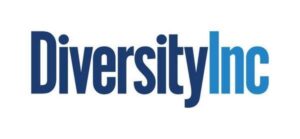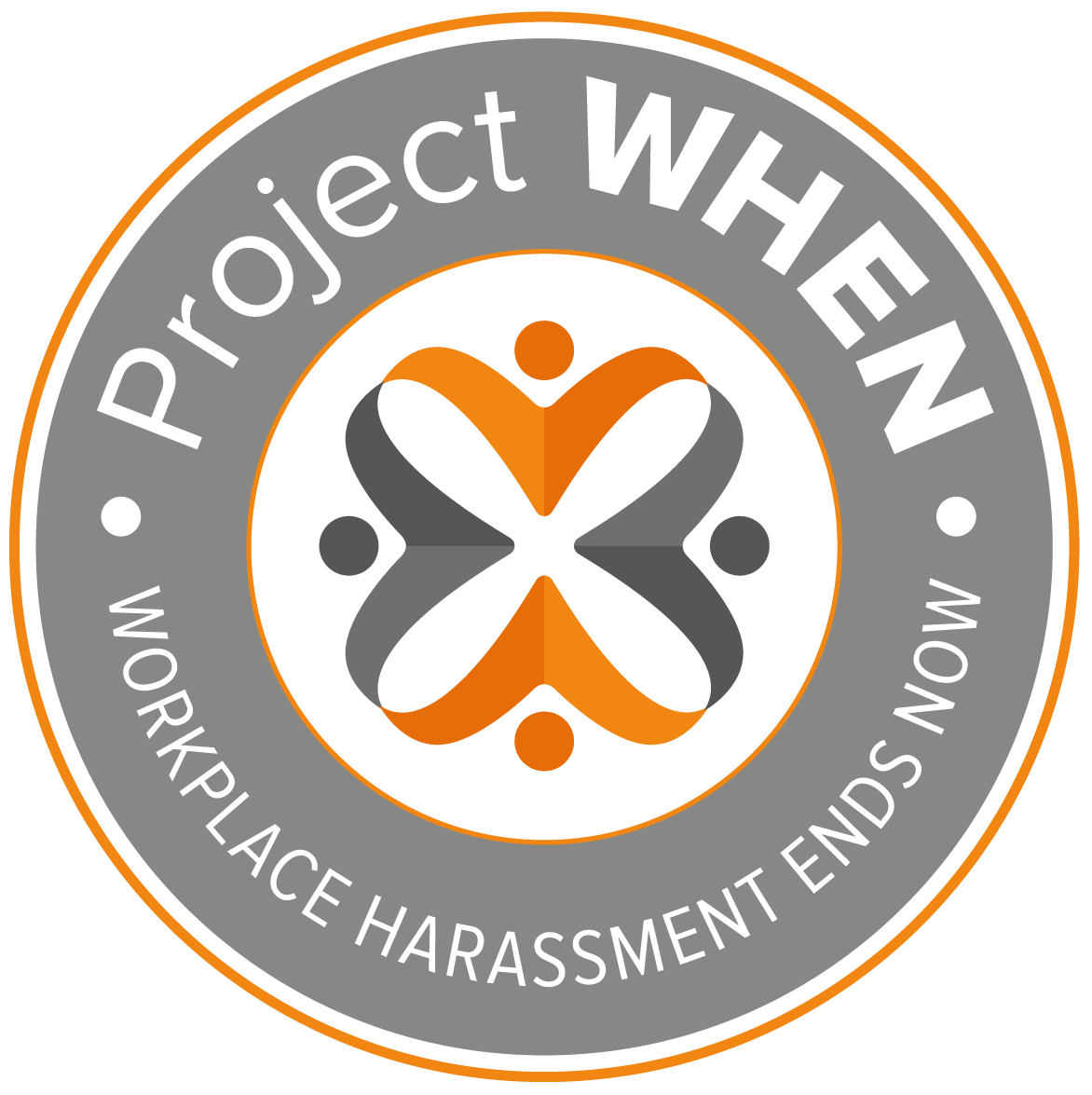Mandatory Anti-Harassment Training in Virginia
Our interview with the woman working to make sexual harassment and workplace discrimination training a requirement for Virginia employers
 How Anti-Harassment Training Legislation Benefits Employees and Employers
How Anti-Harassment Training Legislation Benefits Employees and Employers
Currently, sexual harassment prevention and workplace discrimination training is not mandatory in Virginia. Project WHEN (Workplace Harassment Ends Now) recently sat down with Lisa Sales to discuss her efforts to change this. Lisa is the former Chair of the Fairfax County Commission for Women and was instrumental in realizing Virginia House Bill (HB) 757.
HB 757 requires that all employers with five or more employees in Virginia provide training regarding sexual harassment and workplace discrimination by January 1, 2023. HB 757 was filed by Delegate Paul E. Krizek (D) of House District 44 on January 11, 2022, and was offered on January 12, 2022, as an amendment to the existing Code of Virginia.
The bill includes specific training requirements for supervisory and nonsupervisory employees, seasonal and temporary employees hired to work for less than six months, and migrant and seasonal agricultural workers. The anti-harassment training required under the bill must be provided by an educator or human resources professional and must include a method for employees to electronically save a certificate of completion.
The bill also requires the Department of Labor and Industry to make online training courses available on its website by January 1, 2023.
Why does Harassment Training Matter?
Workplace harassment is a critical issue that affects employees and employers, and there is an increasing societal call to action to address the prevalence of harassment in the workplace. The #MeToo movement has inspired many states to enact policies to combat harassment, and the implementation of mandatory harassment training is an integral component of these policies.
According to Sales, harassment training matters because “Not having training creates inequities in the workplace”. Workplace harassment legislation is crafted to hold employers accountable for documenting, mitigating, and eliminating instances of employee harassment. She emphasized that human resources representatives aren’t often fully equipped and trained to handle harassment situations. Thus, human resources personnel frequently end up working only to minimize corporate risk while dismissing complaints.
These adverse actions leave victims feeling worse, and can negatively impact their mental health. Sales added that it is crucial to take a proactive approach and not rely on umbrella insurance policies as a way to solve workplace harassment issues.
Additionally, she stated that anti-harassment policies are insufficient. Such policies are often passive in nature because employees may be unaware of existing anti-harassment policies if they are not meaningfully shared and reinforced by their employer. There must be a shift “from nice-to-have to must-have for all employees in all states”. Discrete actions are required to foster cultural change.
Mandatory harassment training is important to create a safe workspace for everyone. By educating employees, harassment training enables them to comprehend what harassment is, to recognize it when it occurs, and know what to report to management and when. Harassment training allows employees to comprehend the expected behavior in the workplace so employees know how to identify and avoid harassment, bullying, and other unruly behavior. Having harassment training also offers inclusivity. Harassment training can help the company be more inclusive of the wide range of people who make up its workforce. Employees who understand the implications of their actions are more open to the differences among those with whom they interact on a daily basis.
Why is Harassment Training a Pressing Issue for Virginians?

Lisa Sales believes that it is important to create a safe work environment where people feel protected and are empowered to come forward. Additionally, she highlighted U.S. Equal Employment Opportunity Commission (EEOC) data indicating that harassment is a pervasive problem in U.S. workplaces. The prevalence of workplace harassment is underscored by the high number of harassment complaints filed with the EEOC and the number of complaints submitted with state fair employment practices agencies.
The EEOC disclosed comprehensive breakdowns of 67,448 workplace discrimination charges received by the agency in Fiscal Year (FY) 2020. In Virginia, the EEOC recorded 1,974 individual harassment charges filed in the same year.
Through voluntary resolutions and lawsuits, the agency secured $439 million for victims of discrimination in the private sector and state and municipal government workplaces. Moreover, claims not related to sexual harassment increased by 9.8%. Charging parties are being compensated more throughout the years which indicates that workplace harassment is becoming an increasingly costly offense in financial terms.
Several very large corporations, headquartered in Virginia, currently implement sexual harassment training in states other than Virginia. Sales cited an important example to highlight the disparity. Because the Commonwealth of Virginia does not mandate such training, these large companies are declining to provide existing harassment training to Virginia-based employees on their own. Instead, these companies only provide sexual harassment training to employees working in offices outside of Virginia – in states where the training is required by law.
In Virginia, much of the workforce are civil service employees, military or federal government contractors. Government employees are fairly protected by existing statutory mandates and policies as they are required to partake in harassment training, however, contractors supporting governmental missions are not. The question remains – why isn’t private industry held to similar practices and standards?
What Are The Advantages of Mandatory Harassment Training?
Business Advantages
Contrary to the anecdotal claims that employee harassment training only financially burdens the company and employers, Sales argues that training is ultimately beneficial to the financial well-being of the business. Harassment training can reduce business costs and offer advantages in numerous ways. While companies will invest in upfront and ongoing operational training, these costs are minimal compared to the benefits they receive, which include:
- Reduced financial risk
- Decreased legal costs
- Reduced civil and EEOC complaints
- Decreased umbrella insurance cost
- Avoiding damage to company brand and reputation
- Reduced churn and turnover
- Replacing a toxic work environment with a more supportive and inclusive culture
Harassment training benefits have the potential of bringing increased accountability, productivity, and profitability. It further promotes the safety and well-being of employees and increases adherence to existing ethics and compliance policies and regulations. Importantly, the institution of anti-harassment training and policies deters harassment and other types of workplace misconduct.
Advantages for the Commonwealth of Virginia
Harassment training will not only benefit businesses but also Virginia state government departments and agencies. The implementation of mandatory harassment training is a manifestation of the ideals and convictions of the government to protect its residents from any form of harassment. Virginia can be an example to private industry by forging harassment-free workplaces and encouraging wider culture change.
Sales added that state courts around the country have interpreted anti-harassment laws to make harassment training essential, and have even used it as a basis to determine whether an employer is liable for co-worker harassment when rendering judgments.
What Needs To Be Done?
Training for employees and supervisors is critical. And, the C-suite doesn’t get a pass; it is imperative that executives lead by example and help set ethical expectations. Companies must be sincere and transparent in communicating and reinforcing that harassment will not be tolerated. Employers need to create a safe, supportive workplace culture that includes a robust anti-harassment program and accompanying resources that can assist employees who have experienced workplace harassment.
Sales said this training is just a first step in creating a respectful and safe workplace. Policy and legislation at the state level is crucial element in ensuring that employers implement training. However, companies also need to internally commit energy and resources to foster respectful and inclusive work environments.
Sales concluded that “having harassment training is an issue of fairness and equity and holding employees and employers accountable, so they can work in a place free from harassment. No one should get punished or fired because they raised this to their company’s attention. Instead, they should be lauded for their bravery and stepping forward because it’s a tough thing to do. The system needs to change, and the way we view this from an institutional perspective must also change. It is something I desperately worry about. I’ve talked a lot about my concerns that American institutions continue to re-victimize victims, and that’s what I want to get after. The message is power structures shouldn’t get to prey on the vulnerable and make them more vulnerable, impacting employees for the rest of their lives, whether inside the workplace or outside of it.”
The Commonwealth of Virginia has approved mandatory harassment training, but this is limited to the legislative branch of government. According to the Code of Virginia § 30-129.4., the Office of the Clerk of the House of Delegates and the Office of the Clerk of the Senate are required to provide harassment training to all legislative branch employees every two years. The sexual harassment training course shall be (i) provided online; (ii) available 24 hours per day, seven days per week; and (iii) substantially similar to any sexual harassment training course offered through the Commonwealth of Virginia Learning Center administered by the Department of Human Resource Management.
There is no mandatory harassment training in other sectors of employment, including the private sector.
HB 757 is currently referred to the Commerce and Energy Subcommittee. HB 757 aims to amend the Code of Virginia in Article 1 of Chapter 3 of Title 40.1 by adding a section numbered 40.1-28.7:10, “relating to employment; anti-harassment training requirement.”
 Are you interested in taking action and creating a harassment-free workspace?
Are you interested in taking action and creating a harassment-free workspace?
Project WHEN provides organizations with an opportunity to enroll in the WHEN™ Organizational Certification program wherein employers can go through a structured process of learning how to prevent workplace harassment and create a more respectful work environment.
Service providers, internal practitioners, and other professionals can obtain a micro-credential by enrolling in the WHEN™ Professional Certification program. It is a five-course module that Project WHEN, together with Human Resources Certification Institute (HRCI), will be launching soon. This course is perfect for individuals passionate about driving change in the workplace and who want to be Anti-Harassment Certified Practitioners.
Getting Involved with Project WHEN
Learn more about how you can support us or get involved with our organization here.
Join our mailing list to stay updated about the latest Project WHEN news. We also encourage anyone passionate about eliminating workplace harassment to sign our Pledge of Commitment to demonstrate your support in creating respectful, harassment-free workplaces for future generations.
About Lisa Sales

Lisa Sales was a management and strategy consultant with Booz Allen Hamilton’s Global Defense Group for a decade. She was awarded the Fairfax County, Virginia Citizen of the Year in 2020 by the Fairfax County Federation of Citizens Associations. In September 2021, Ms. Sales was honored with the “Lady Fairfax Award” for Outstanding Citizen of Fairfax County by the Board of Supervisors for “demonstrated exceptional volunteer service, heroism, or other special accomplishments.”
She served on the Biden for President Domestic Policy Team, Women & Families Committee, where she wrote or contributed to numerous policy papers on gender equality, including Domestic and Sexual Violence and the Equal Rights Amendment for the transition team.
Ms. Sales is the former Chairwoman of the Fairfax County Commission for Women (CFW) and was the Mount Vernon District Commissioner. CFW advises the County Board of Supervisors on policies and initiatives to promote gender equality, eliminate violence against women, and honor women and girls in Fairfax County. She also advocates for strengthening laws on protective orders by providing greater protections to survivors of domestic and sexual violence, particularly when it comes to firearms surrender. She was appointed to the Chairman’s Stakeholders Council on Race – a group composed of residents, staff, and the civic, faith, nonprofit, philanthropic, and business communities which presented its findings on racial equity to the county Board of Supervisors in December 2019.

 Previous Post
Previous Post Next Post
Next Post




